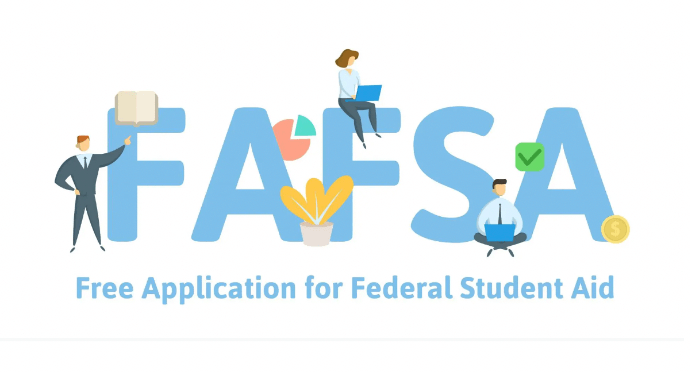Mahika Ralhan ’26
This year, the Free Application for Federal Student Aid (FAFSA) has implemented new changes to its application format.
FAFSA is a free government application that uses financial information from families to determine eligibility for financial aid from the federal government to pay for college. FAFSA then sends families’ financial information to the schools they are interested in attending, and these schools will send financial aid packages to students once they are admitted into the college.
Danielle Avicolli, College Financing Counselor explains that the new application is now easier to complete. She says, “The biggest change is that the form has become simpler to complete, so before there were nearly 100 questions that every student and their family had to complete, even if they didn’t apply to their situation. Now the algorithm is smart enough to know if you answered one way on a particular question, you no longer have to answer the subset of question that goes along with it.”
FAFSA now takes into account inflation when considering financial aid. Avicolli states, “The other thing that changed was an inflation chart. As things get more expensive, how much of a family’s discretionary income should be expected to be available for paying for college?” Another change is that the new application only uses the IRS to get financial information. “The third biggest one is that you won’t have to supply any financial information, all of that will come directly from the IRS, and that was one of the ways they were able to cut down on the number of questions. Previously, families would fill out all the financial information and permit FAFSA to double-check their information against the IRS.”
These new changes were expected to make the application process simpler for families applying for federal aid, however, numerous issues have occurred. Avicolli says, “It has been a disaster logistically. In theory, it should make everything much easier for families. But what has ended up happening, in this cycle for kids applying for the 2024-2025 academic year, not one single college has received FAFSA information yet.”
Daniel Demessie ’24 comments on the FAFA difficulties saying, “As someone who desires to appeal my aid award, the FAFSA not providing my eligibility right now makes the appeal process much more complicated. While it stated that it should have gotten back to us in early January, we still haven’t received our information yet.”
Accessibility issues and customer service issues have also occurred on the application. Avicolli continues, “Some of the information wasn’t coded properly, so now the Department of Education is trying to figure out how of the millions of FAFSAs that have already been filed, how they will go ahead and correct that mistake.”
With the many issues arising this year, Avicolli is hopeful that FAFSA will resolve the issues, and make the process simpler in years to come, as the new application was intended to do.

Photo courtesy of access-wealth.com